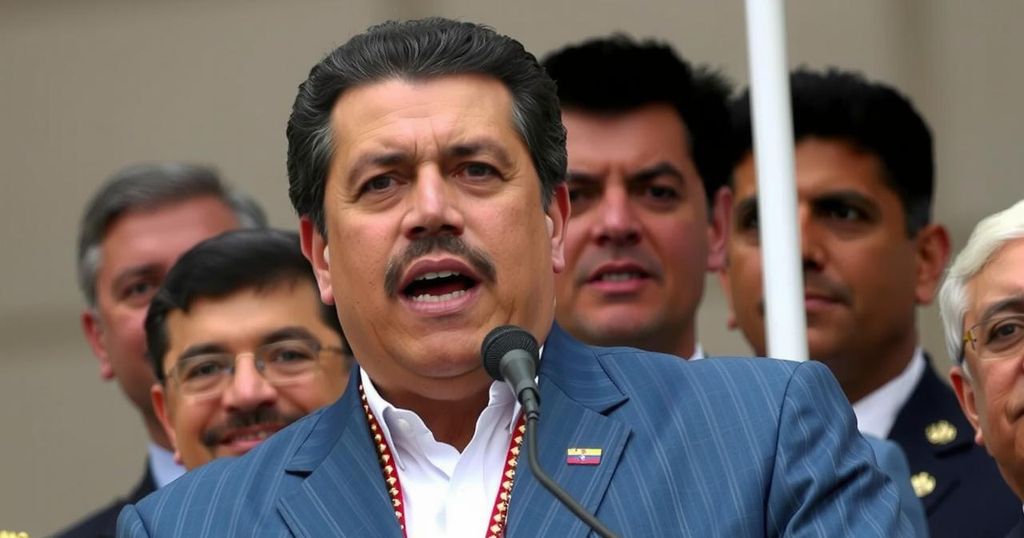Maduro Sworn in for Third Term Amid International Condemnation

Nicolás Maduro was sworn in for a third term amid accusations of electoral fraud and widespread domestic and international opposition. The ceremony, boycotted by many democratic leaders, illustrated Maduro’s authoritarian grip amid harsh repression of dissent. Opposition figures and international officials voiced strong condemnation, asserting that Maduro’s presidency lacked legitimacy and pledging support for Venezuela’s democratic restoration.
Nicolás Maduro was inaugurated for a third term as Venezuela’s president amidst significant domestic unrest and international criticism regarding the legitimacy of his election. His oath-taking ceremony in Caracas was poorly attended, with many democratic leaders opting to boycott the event. Following allegations of electoral manipulation and a lack of credible evidence supporting his victory, Maduro has faced vehement opposition from both within Venezuela and the international community.
During his prolonged speech, Maduro presented himself as a champion of democracy while attacking his opponents as right-wing extremists. Notably absent from the ceremony were progressive leaders from Brazil and Colombia, underscoring a shift in regional alliances. International condemnation swiftly followed the inauguration, with various officials claiming that the election results were neither free nor fair.
In response to Maduro’s claims, US Secretary of State Antony Blinken asserted that the Venezuelan people were aware of the election results and that the Biden administration remained committed to promoting democratic restoration in Venezuela. Furthermore, the UK announced further sanctions against Maduro’s regime. Despite a fierce climate of repression, opposition leaders continue to actively resist Maduro’s rule, pledging to advocate for democracy through peaceful means.
Maduro’s inauguration exemplifies the deepening crisis in Venezuela, reflective of the ongoing power struggle amid claims of widespread human rights abuses and economic collapse. As opposition movements attempt to grapple with the current political landscape, the international community remains vigilant in condemning Maduro’s actions and supporting a potential return to democratic governance.
Nicolás Maduro’s presidency has been marked by escalating authoritarianism since he first assumed office in 2013. His government has faced continuous allegations of electoral fraud, particularly regarding the presidential election held on July 28, which saw widespread criticism and accusations against Maduro for manipulating the vote. This recent inauguration exemplifies the strained political climate in Venezuela, with growing dissent from both domestic and international actors. The opposition, led by figures like Edmundo González, claims legitimate victory in the elections, demanding accountability and adherence to democratic principles. The global response has involved sanctions and diplomatic pressure aimed at restoring democracy in the country.
Nicolás Maduro’s swearing-in ceremony exemplifies the contentious political climate in Venezuela, characterized by claims of electoral fraud and international repudiation. The absence of prominent regional leaders at the event highlights a growing divide between Maduro’s regime and democratic nations. Despite ongoing repression, opposition leaders remain resolute in their pursuit of democratic governance, showcasing the resilience of Venezuelan civil society. The situation in Venezuela continues to evolve, attracting global scrutiny and calls for accountability from Maduro’s government.
Original Source: www.theguardian.com







